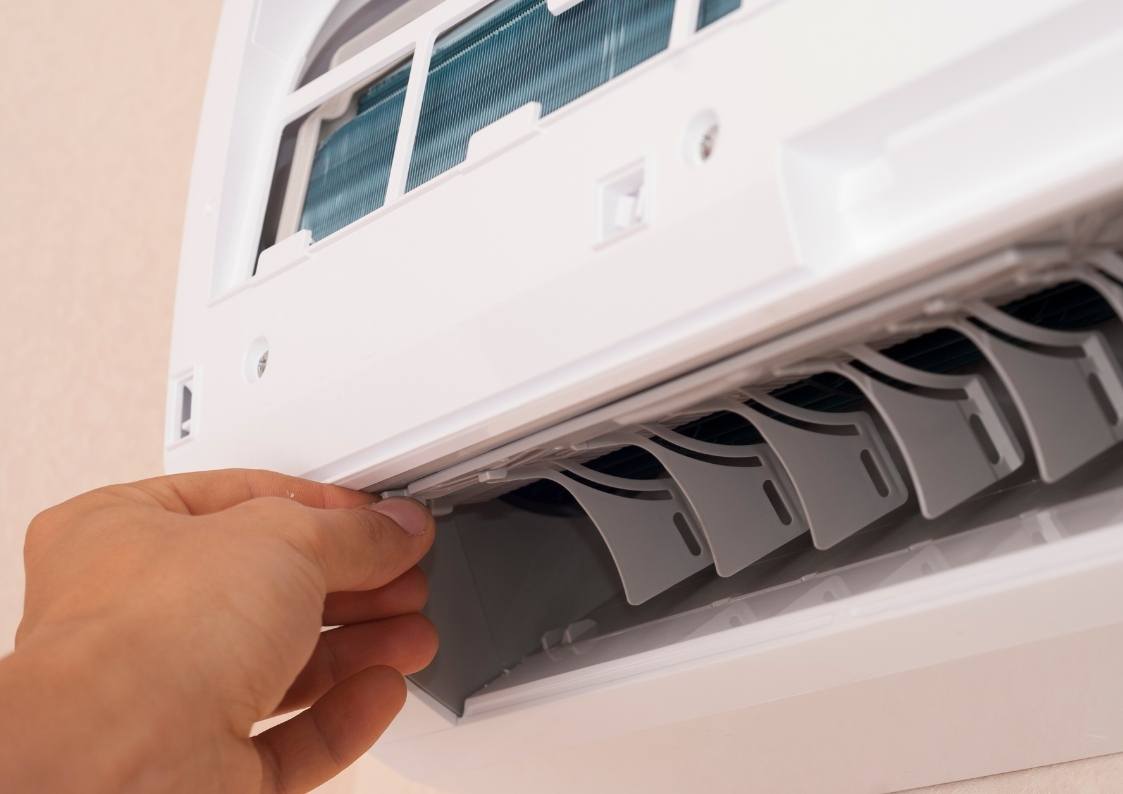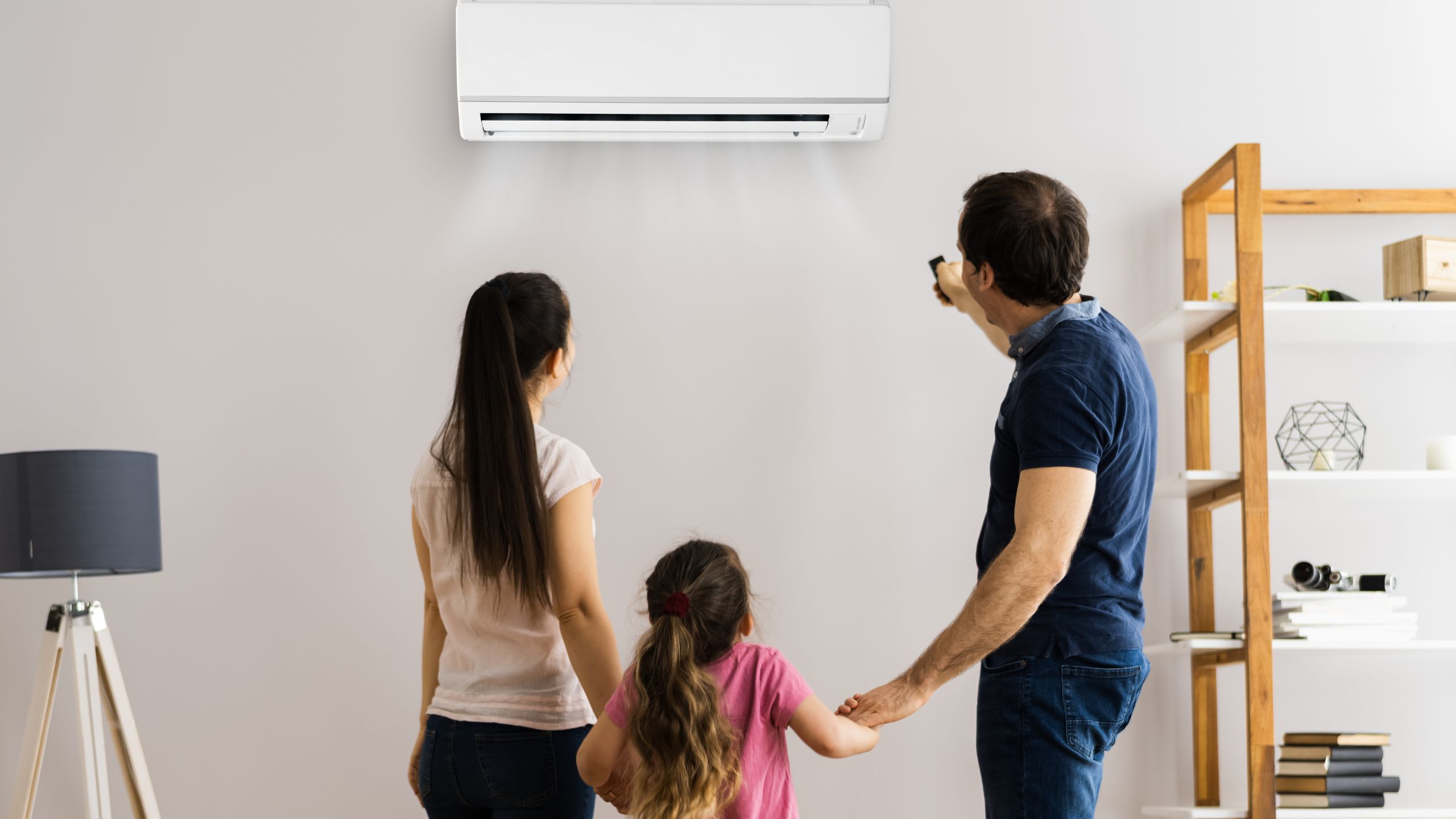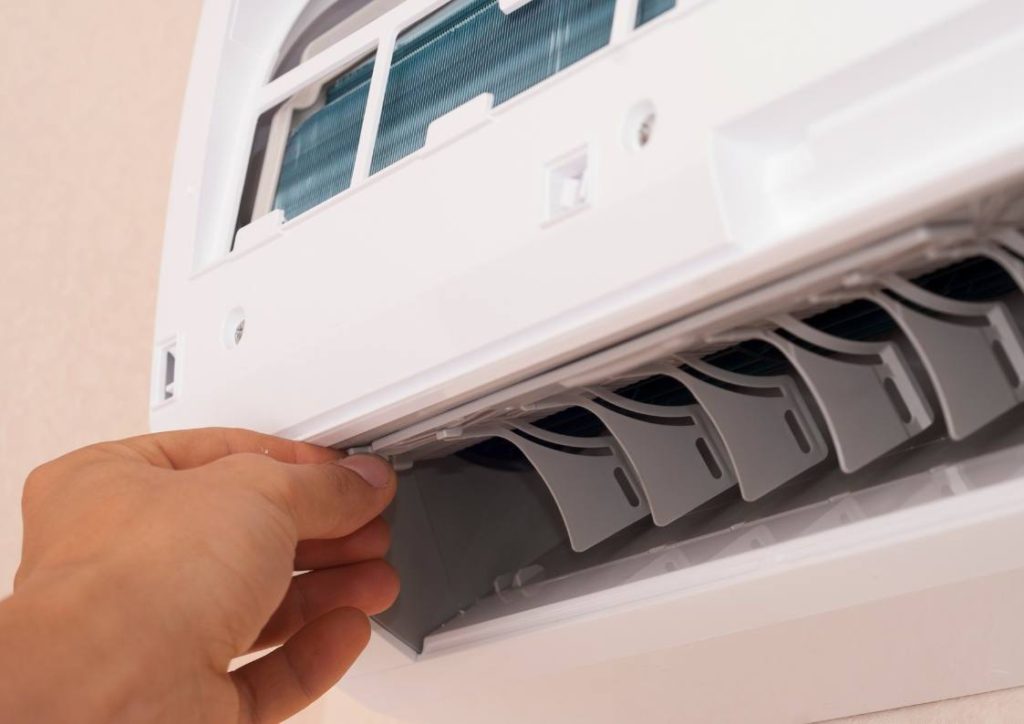From the dedicated team at Direct Point Heating & Cooling – Melbourne
Your air conditioner might seem to be operating well, yet if the filters haven’t been cleaned in a while, you could be unwittingly losing as much as 30% of your system’s cooling efficiency. This significant decline in performance can greatly affect your comfort levels, particularly during the sweltering Australian summer when temperatures can reach extreme highs.
Dirty filters are a leading factor contributing to reduced airflow, rising energy costs, and worsening indoor air quality. While cleaning the filters might appear simple, there is a systematic approach you should follow to achieve optimal outcomes.
This comprehensive guide will walk you through the precise steps necessary to clean your filters effectively, underscore the importance of regular maintenance, and identify the signs indicating when it’s time to engage a professional for an in-depth system clean.

Discover the Essential Benefits of Regularly Cleaning Your Air Conditioner Filters
The filters in your air conditioning system are expertly engineered to capture dust, allergens, and other particles before they contaminate the air you breathe. However, over time, these filters can become clogged, leading to increased pressure on the system, obstructed airflow, and potentially creating an environment conducive to mould growth inside the unit.
Regular filter cleaning is vital for:
- Boosting overall system efficiency
- Reducing energy consumption
- Prolonging the lifespan of your air conditioning unit
- Enhancing indoor air quality within your home
Neglecting this critical maintenance task can lead to elevated operating costs, a higher probability of equipment failures, and air quality that may pose health risks to your family members.
Follow This Detailed Step-by-Step Process to Clean Your Air Conditioner Filter Effectively
Step 1: Confirm That Your Air Conditioning Unit is Completely Powered Down and Unplugged
Before you begin the cleaning process, it’s essential to ensure that the power supply is completely turned off. For wall-mounted split systems, switch off the power at the wall socket and unplug the unit. If your system is hardwired, make sure to turn off the dedicated circuit at your switchboard to guarantee safety while you clean.
Step 2: Carefully Remove the Filter from the Unit
Gently open the front panel of your indoor unit. Carefully slide out the filter, making sure not to bend or damage the mesh. Be aware that certain units may have clips or latches that must be released before the filter can be removed.
Step 3: Clean the Filter Using Mild Soap and Warm Water
Prepare a tub or sink filled with lukewarm water and add a small amount of gentle detergent. Allow the filter to soak for several minutes, then use a soft brush to delicately scrub away any accumulated dust or grime. Exercise caution by avoiding harsh chemicals or aggressive scrubbing, as this could damage your filter.
Step 4: Ensure the Filter is Completely Dry Before Reinstalling
Shake off any excess water and place the filter in a well-ventilated area to air dry, steering clear of direct sunlight. It’s imperative not to reinstall a damp filter, as moisture can promote the growth of mould and bacteria within your air conditioning system.
Step 5: Reinsert the Filter and Assess the System’s Performance
Once the filter is thoroughly dry, slide it back into its designated slot, close the panel, and switch your system back on. After powering it up, check that the airflow feels strong and consistent, which indicates that the cleaning process was successful.
Is DIY Cleaning Enough for Your Air Conditioner?
While regular filter cleaning is an important routine, it mainly addresses surface-level concerns. Your air conditioning unit needs professional servicing to effectively tackle:
- Buildup of dust and mould within the fan and coils
- Clogs in drain trays and internal components
- Efficiency declines caused by dirty or faulty parts
At Direct Point Heating & Cooling, we offer comprehensive system cleans and maintenance that go beyond basic upkeep. Our experienced technicians service both indoor and outdoor units, ensuring that every component of your system operates at its highest efficiency.
How Often Should You Clean Your Air Conditioner Filters for Optimal Performance?
We generally recommend the following cleaning schedule:
- For standard household usage: Every 2–3 months
- For homes with allergies or pets: Monthly
- For commercial spaces or high-usage systems: Monthly or possibly more frequently
Moreover, we suggest scheduling professional servicing at least once a year to ensure your system operates efficiently and to prevent the risk of expensive breakdowns.

What Are the Benefits of Professional Air Conditioner Cleaning Services?
A thorough air conditioning service encompasses:
- Comprehensive cleaning of all filters, fans, coils, and drain trays
- Monitoring refrigerant levels and assessing overall system performance
- Inspecting and cleaning the outdoor compressor unit
- Spotting any signs of wear or potential system failures early on
Many individuals concentrate solely on cleaning their filters; however, the real performance issues often reside deeper within the system. This is where our expertise becomes invaluable.
Schedule Your Thorough Air Conditioner Cleaning with Direct Point Today
While cleaning the filters is a great first step, for long-lasting efficiency, energy savings, and peace of mind, consistent professional maintenance is essential.
We proudly service all major cooling systems throughout Melbourne, including:
- Wall-mounted split systems
- Multi-head units
- Ducted refrigerated systems
- Evaporative cooling systems
Contact Direct Point Heating & Cooling at 1300 170 961 or email us at [email protected] to arrange your service today.
The Article: Air Conditioner Filters: Why Cleaning Them is Essential first appeared on https://writebuff.com
The Article Air Conditioner Filters: The Importance of Regular Cleaning Was Found On https://limitsofstrategy.com
References:
https://limitsofstrategy.com/air-conditioner-filters-the-importance-of-regular-cleaning-2/



